Instant Opinion: ‘We are all tactical voters, aren’t we?’
Your guide to the best columns and commentary on Tuesday 5 November

The Week’s daily round-up highlights the five best opinion pieces from across the British and international media, with excerpts from each.
1. Hugo Rifkind in The Times
on immature voting
Subscribe to The Week
Escape your echo chamber. Get the facts behind the news, plus analysis from multiple perspectives.

Sign up for The Week's Free Newsletters
From our morning news briefing to a weekly Good News Newsletter, get the best of The Week delivered directly to your inbox.
From our morning news briefing to a weekly Good News Newsletter, get the best of The Week delivered directly to your inbox.
In the end we’re all tactical voters, aren’t we?
“Probably, though, we all ought to just grow up a bit. Tactical voting is the child born when an archaic voting system gets into bed with an informed electorate. The first British electoral contest in which it probably played an undeniable role was the Greenwich by-election of 1987 when a few thousand Tory voters swung behind the SDP’s Rosie Barnes to beat off Labour. Reading back, much of the political establishment seems to have regarded this as a dangerous and probably immoral development of electoral strategy, not a million miles away from cheating.”
2. Michael Deacon in The Telegraph
on a less-than-glowing sendoff
John Bercow had gone at last... and his wannabe successors utterly trashed him
“Funny, isn’t it. On Thursday last week, MPs spent three solid hours paying lavish tribute to John Bercow. He was, they gushed, ‘a transformative Speaker’, ‘truly impartial’, ‘such a good human being’ who had ‘touched the lives of hundreds of thousands’... Then on Monday – the very next parliamentary sitting day – MPs burst into deafening cheers as his wannabe successors took turns to trash him as a one-sided, interfering, egotistical gasbag. None of them referred to Mr Bercow by name, but it was perfectly clear who they were talking about.”
3. Ted Rall in The Japan Times
on an unspoken controversy in US politics
The killing of al-Baghdadi: Illegal, disgusting and degenerate
“We have come a long way since 1981, when President Ronald Reagan, a conservative Republican, signed Executive Order 12333, which states: ‘No person employed by or acting on behalf of the United States Government shall engage in, or conspire to engage in, assassination.’ E.O. 12333 — which remains in force — was part of the aftermath of the Church Committee hearings of the 1970s, which exposed assassinations and other illegal acts committed by the CIA in Latin America and elsewhere at the height of the Cold War. American spooks conspired to murder political adversaries and heads of state, mainly on the left, all over the world. Back then, the political class had the grace to pretend to be ashamed.”
4. Paul Krugman in The New York Times
on bankers unable to take criticism
Attack of the Wall Street snowflakes
“What, after all, does modern finance actually do for the economy? Unlike the robber barons of yore, today’s Wall Street tycoons don’t build anything tangible. They don’t even direct money to the people who actually are building the industries of the future. The vast expansion of credit in America after around 1980 basically involved a surge in consumer debt rather than new money for business investment. Moreover, there is growing evidence that when the financial sector gets too big it actually acts as a drag on the economy — and America is well past that point.”
5. Eliora Katz in Tablet Magazine
on the growing disillusionment with Tehran
The revolt against Iran
“While the majority of Iraqis share the same Shiite religious faith practiced in Iran, it is precisely in Iraq’s Shiite strongholds where the revolt against Iranian rule has taken root. Motivated more by national self-interest than, religious ideology, Iraq’s protesters hold the Iranian-dominated political establishment accountable for their country’s decay. These feelings have not developed overnight. Protests erupted last year in the oil rich city of Basra, when Iran turned off a power line in the region. Basra residents repeated ‘Iran out!’ as they burned Iranian flags, the Iranian consulate, and headquarters of Iran-linked militias.”
Create an account with the same email registered to your subscription to unlock access.
Sign up for Today's Best Articles in your inbox
A free daily email with the biggest news stories of the day – and the best features from TheWeek.com
-
 What to know when planning an awe-inspiring hike on the Inca Trail
What to know when planning an awe-inspiring hike on the Inca TrailThe Week Recommends Peru's most famous trail leads to Machu Picchu
By Catherine Garcia, The Week US Published
-
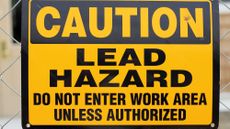 Lead poisoning remains a threat
Lead poisoning remains a threatThe Explainer The toxin is built into our lives
By Devika Rao, The Week US Published
-
 Should you use a 529 plan? What to know about this college savings option.
Should you use a 529 plan? What to know about this college savings option.The Explainer This tax-advantaged savings account can be used to pay tuition or buy textbooks
By Becca Stanek, The Week US Published
-
 Flies attack Donald Trump
Flies attack Donald TrumpTall Tales And other stories from the stranger side of life
By Chas Newkey-Burden, The Week UK Published
-
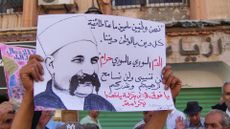 Protests in Syria: could they bring down the Assad regime?
Protests in Syria: could they bring down the Assad regime?Talking Point Threat to power grows amid poverty, inflation and ‘botched’ response to earthquake
By The Week Staff Published
-
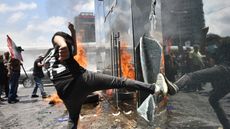 A country still in crisis: Lebanon three years on from Beirut blast
A country still in crisis: Lebanon three years on from Beirut blastfeature Political, economic and criminal dramas are causing a damaging stalemate in the Middle East nation
By Chas Newkey-Burden Published
-
 Donald Trump criminal charges for 6 January could strain 2024 candidacy
Donald Trump criminal charges for 6 January could strain 2024 candidacySpeed Read Former president’s ‘pettifoggery’ won’t work well at trial, said analyst
By Chas Newkey-Burden Published
-
 How Gibraltar became the last frontier of Brexit
How Gibraltar became the last frontier of Brexitfeature A Spanish election victory for conservatives could spell disaster for UK-Spain sovereignty deal over the ‘Rock’
By Harriet Marsden Published
-
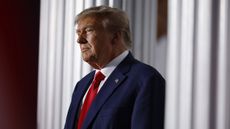 Donald Trump in the dock: a fraught moment for US democracy
Donald Trump in the dock: a fraught moment for US democracyTalking Point There is speculation that former president could end up running his 2024 election campaign from behind bars
By The Week Staff Published
-
 Donald Trump indicted again: is latest threat of prison a game changer?
Donald Trump indicted again: is latest threat of prison a game changer?Today's Big Question The former president ‘really could be going to jail’ but Republicans ‘may not care’ say commentators
By Chas Newkey-Burden Published
-
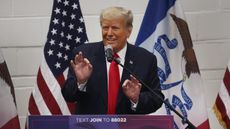 Trump told he could face charges over classified Mar-a-Lago documents
Trump told he could face charges over classified Mar-a-Lago documentsSpeed Read A second criminal indictment is on the cards for the former US president and current Republican frontrunner
By Sorcha Bradley Published